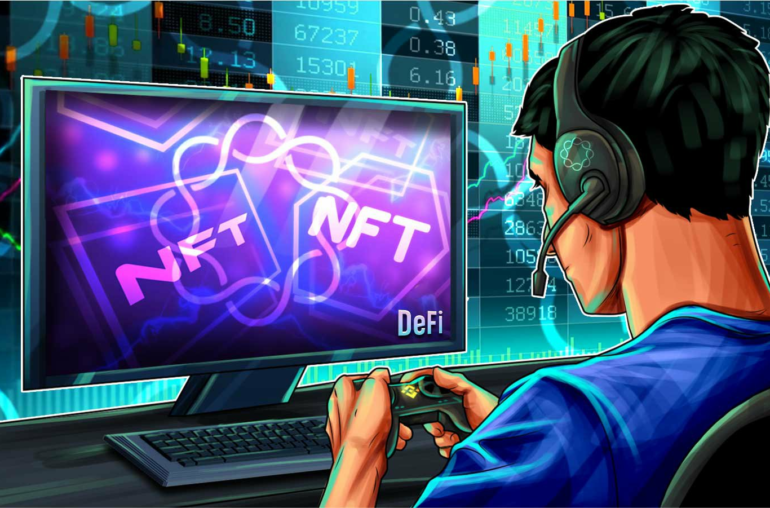The non-fungible token, known as the “NFT,” has risen to prominence in the digital assets market as a new asset class. NFTs saw US$17.7 billion in sales in 2021 alone. They have since garnered attention from celebrities, artists, luxury brands, and video game companies as a novel way to monetize digital media.
Successful commercialization of this asset class, however, requires attention to the intellectual property implications of NFT transactions. Importantly, ownership of an NFT does not equate to nor necessarily imply ownership of the underlying associated IP assets. Although many in the crypto industry treat NFTs as though the media associated with the NFT is the NFT itself, that is not always the case. The NFTs we discuss are separate digital assets tracked on blockchains that are associated with digital media assets that are stored on other computer systems. For this reason, robust IP licensing practices are necessary to ensure those participating in NFT transactions do not find themselves embroiled in costly lawsuits around IP ownership and use, or disappointed by misunderstandings about what a purchaser receives when they buy an NFT.
In this alert, we identify three structural licensing failures that are common in the NFT industry. Those looking to participate in the NFT industry should be aware of these failures and seek to avoid them in their own NFT ventures.
Many NFT ventures have failed altogether to adopt and implement any licensing model. Without an explicit license, in case of a dispute over use or ownership of the digital media associated with an NFT, courts will apply common law contractual and licensing principles, which could prove disastrous for both the NFT purchaser and the owners of the IP over the digital assets associated with the NFT.
A core tenet of contract law holds that when a contracting party does not know, or has no reason to know, the contractual intent of the other contracting party, and that other party does know the intent of the first party, then the first contracting party’s meaning will control the contract. This legal principle subjects IP owners to the risk of unintentionally losing ownership of the IP assets associated with their NFTs.
In practice, this could look like the following: Lillian is a renowned digital artist and creates a collection of NFTs showcasing her digital art. She sells her NFTs online without any licensing terms attached. She is aware of the widespread misconception among NFT purchasers that they are acquiring ownership of the IP rights in the NFTs they purchase, and she is hoping this misconception appreciates the NFTs’ prices. If challenged in court, even though Lillian did not explicitly grant or transfer any IP rights, she could nevertheless cede them to purchasers since she had reason to know that the purchasers believed they were purchasing the IP rights.
This risk associated with confusion as to ownership of IP is prevalent and could have the opposite result as well. Just last year a cryptocurrency-backed decentralized autonomous organization (DAO) purchased a rare book for €2.6 million, with the hopes of producing an animated series based off the book. The DAO assumed that ownership of the physical copy entitled them to the copyright and right of producing derivative works. It did not, which left the DAO in an unfortunate position, having invested heavily in the purchase of the book.
To avoid such confusion, NFT ventures, at a minimum, must provide some explicit license language in connection with the sale of their NFTs.
Second, and perhaps the most pervasive licensing failure, is that some NFT ventures provide explicit license language in connection with their NFTs but fail to put NFT purchasers on notice of the existence or terms of the license. Without clear notice of terms, the license is likely to be ineffective and unenforceable. In other words, even if an NFT venture provides a license, each purchaser must have the opportunity to accept the license terms, which is a necessary element to create a legally binding contract.
In most major NFT ventures, licensing terms are tucked away on a venture’s website, which may not be where either primary or secondary sales of the NFTs take place. Instead, such sales of NFTs often happen on NFT marketplaces like OpenSea, where the inclusion of licensing terms is not required to purchase or sell an NFT. In such cases, purchasers may not even know that a license exists or where to find it.
If challenged in court, a purchaser could successfully argue that they are not subject to any license terms since they were not aware of the license or did not assent to its terms. Consequently, any licensing restrictions on the use of the intellectual property assets represented by the NFT, such as a restriction on commercialization of the asset, may be unenforceable. Moreover, the absence of a legally binding contract could result in the loss of IP ownership rights altogether.
As such, NFT ventures must take steps to ensure every sale of their NFTs is conspicuously accompanied by their license terms. This may be accomplished by including licenses directly in the listings of NFTs, through click-wrap agreements, or perhaps through some mechanism utilizing the NFT’s metadata. Certain NFT marketplaces embed licensing terms directly into listing, which greatly reduces the risk of unenforceable licenses.
Third and lastly, even if an NFT venture does provide an explicit and conspicuous license, the terms may be implemented in a way that is nevertheless impossible or impracticable to enforce.
Many prominent NFT ventures are adopting licensing restrictions that attempt to protect against copyright infringement, trademark infringement, or other objectionable use of the digital media content. In particular, an NFT issuer may impose restrictions on using the licensed NFT IP assets to depict hatred, intolerance, violence, or cruelty, or infringe upon the rights of others; and using the NFT venture’s brand and other trademarks that may accompany the NFT in any manner that is objectionable, likely to cause confusion or dilute, blur, or tarnish the venture.
Such restrictions are essential with the increase in NFT adoption by luxury brands or other companies for which the protection of brand and public image is paramount. However, a venture’s NFTs may be purchased by entirely unknown entities, perhaps in remote jurisdictions, and with no coded mechanisms to enforce breaches of licensing terms, breaches, such as the contravention of license limitations, may be extremely difficult to stop from a practical perspective.
To resolve these enforcement issues, NFT issuers may grant themselves administrative authority over the NFT smart contract’s code, allowing them to unilaterally change ownership of NFTs. For example, if an owner of an NFT issued by a luxury brand uses it to tarnish the brand’s image, thus breaching the terms of the license, the luxury brand, as contract administrators, may revoke ownership of that NFT, substantially mitigating the potentially catastrophic harm to its brand. Such basic administrative authority would also enable the seamless return of stolen NFTs, which may help prevent situations like the one concerning a stolen Bored Ape Yacht Club NFT that headlined industry news this past spring.
Without these hard-coded mechanisms, licenses are only useful to the extent they are successfully enforced through litigation, assuming NFT holders can be identified. However, in many cases, the harm has already been done long before any litigated relief may be obtained. NFT ventures should seek to avoid this outcome through basic, coded mechanisms that allow for the efficient enforcement of licensing terms.
These three structural licensing failures are the growing pains of this entirely novel asset class. Although there has yet to be litigation targeting these failures, the law is clear: (1) explicit licensing terms greatly reduce the risk of losing one’s IP rights, (2) purchasers must assent to conspicuous license terms for them to be enforceable, and (3) licensing terms must be practicably enforceable to be valuable. As such, participants in the NFT industry and others looking to expand into the space must keep these issues top of mind and ensure their ventures do not fall victim to such licensing failures.
We acknowledge the contributions to this publication from our summer associate Joshua Durham.
This publication/newsletter is for informational purposes and does not contain or convey legal advice. The information herein should not be used or relied upon in regard to any particular facts or circumstances without first consulting a lawyer. Any views expressed herein are those of the author(s) and not necessarily those of the law firm's clients.
Global Counsel Across Five Continents. Our office locations can be viewed here.
We welcome your email, but please understand that if you are not already a client of K&L Gates LLP, we cannot represent you until we confirm that doing so would not create a conflict of interest and is otherwise consistent with the policies of our firm. Accordingly, please do not include any confidential information until we verify that the firm is in a position to represent you and our engagement is confirmed in a letter. Prior to that time, there is no assurance that information you send us will be maintained as confidential. Thank you for your consideration.


